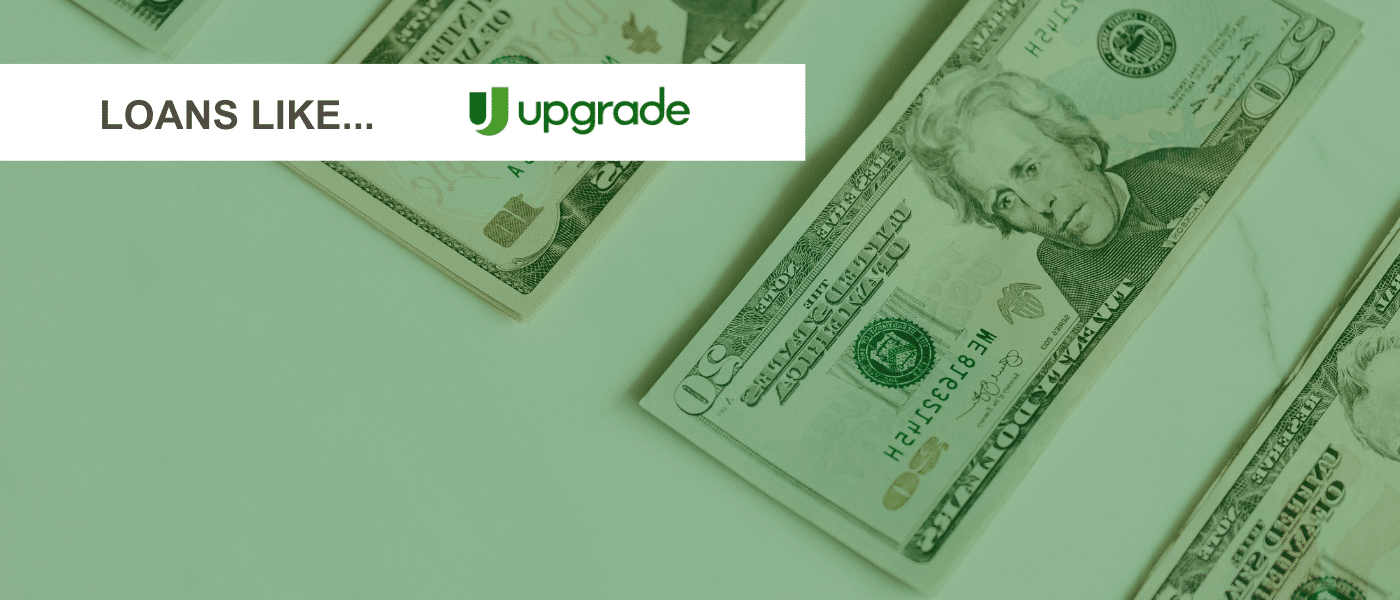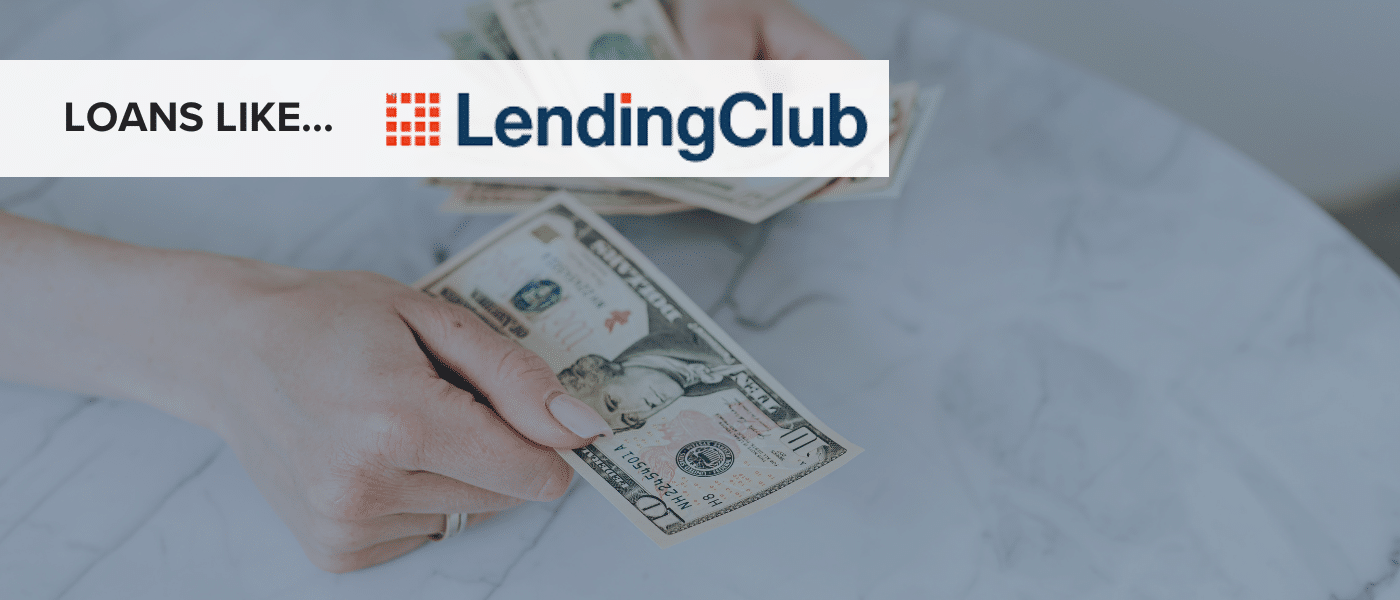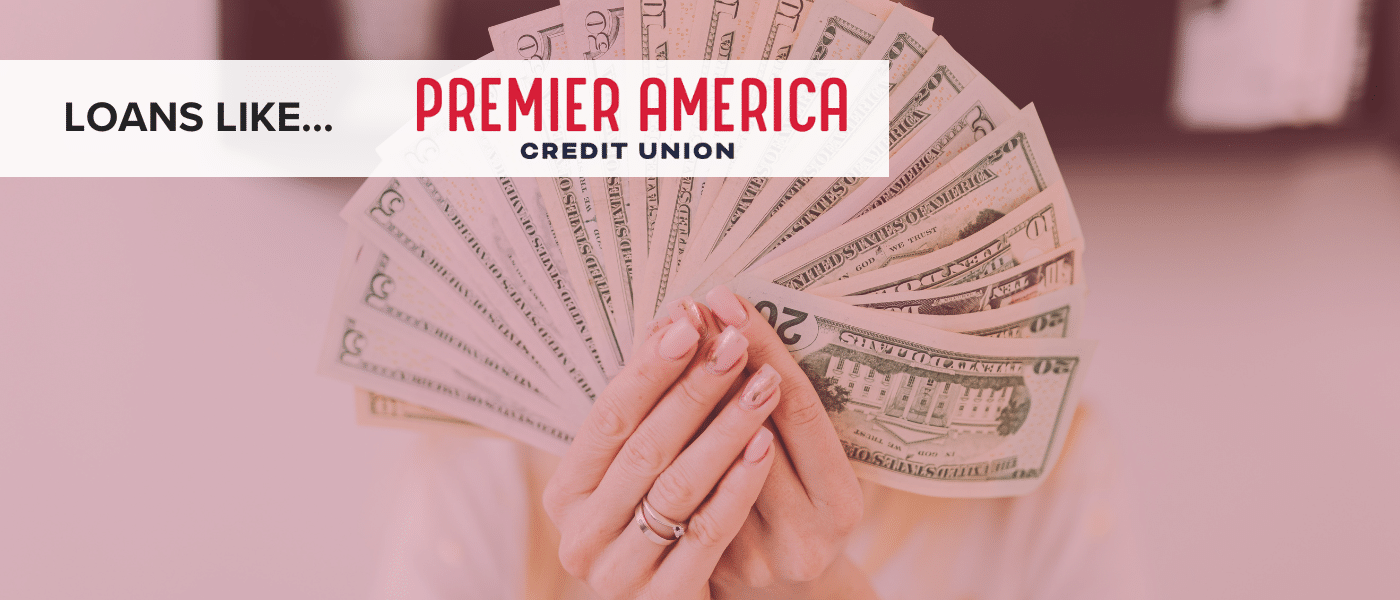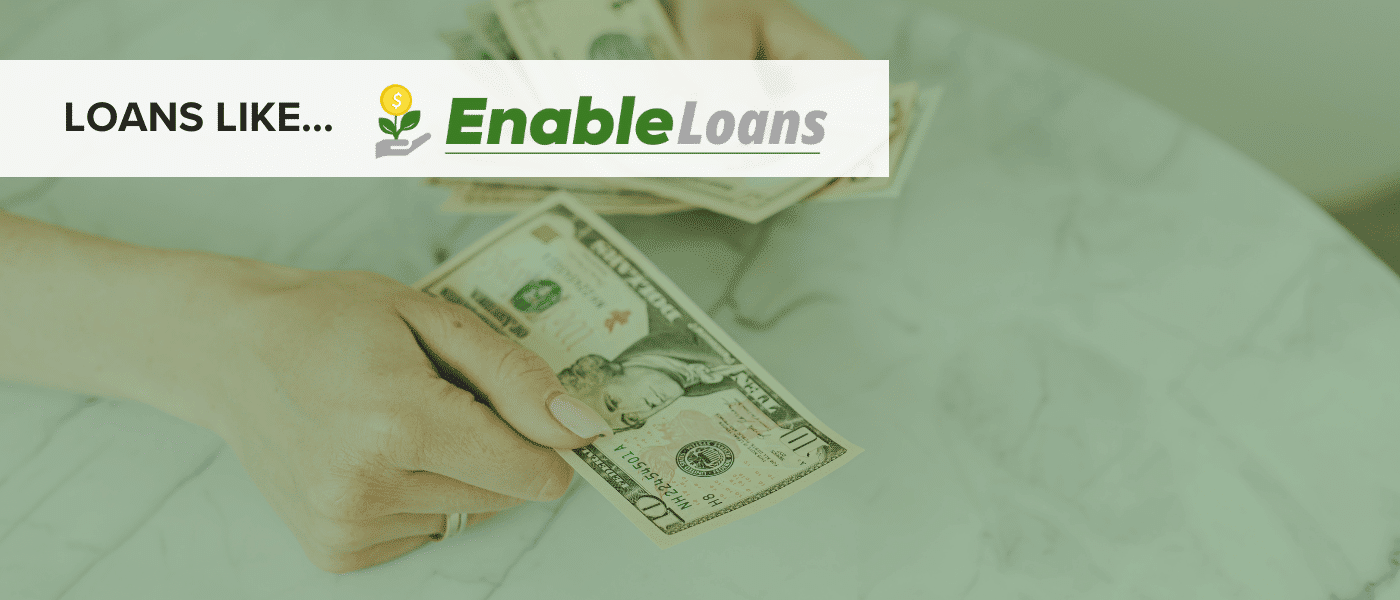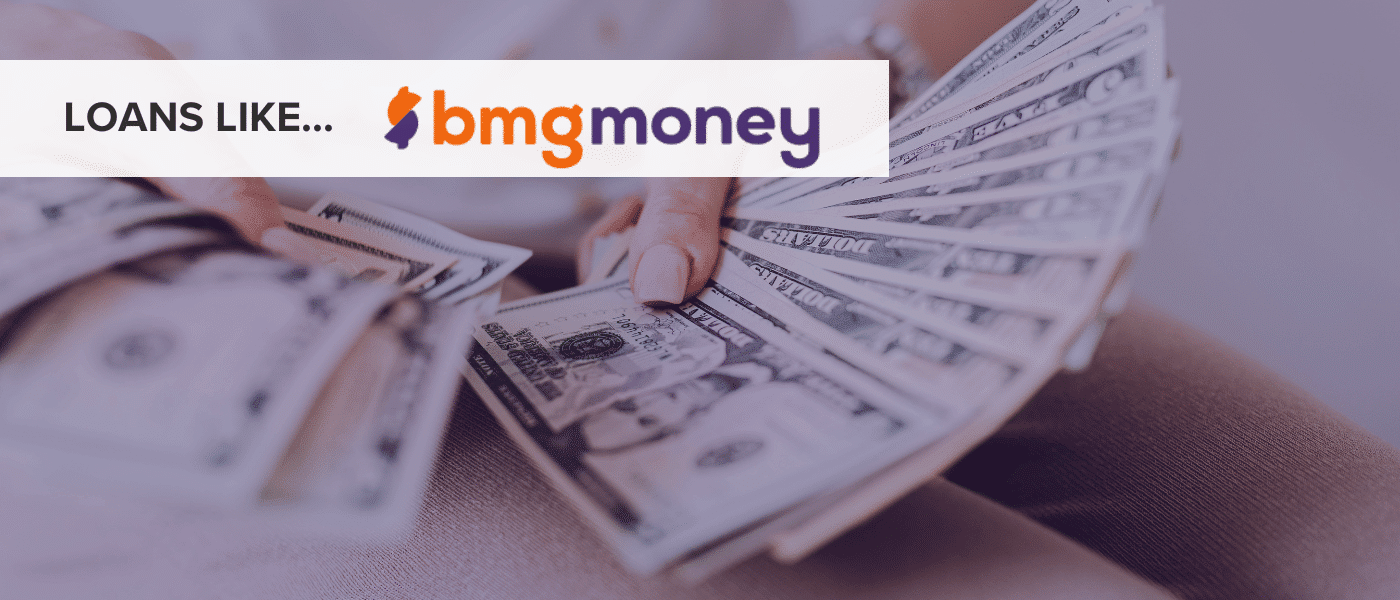Upgrade is a popular online lender similar to CreditNinja, but it’s not your only choice when it comes to personal loans. While Upgrade can be a good option for some borrowers, CreditNinja stands out by offering fast funding, no minimum credit score requirements, and no hidden fees, making it one of the most accessible lenders around.
If you’re searching for alternatives to Upgrade, we’ve put together a list of solid options that may work better for your situation. While those other options are great for some, CreditNinja is designed to get you the money you need quickly and with clear, straightforward terms.
Finding The Right Personal Loan
CreditNinja can help you prepare your finances so you can find the right personal loan for you! You can:
- Check your credit score
- Review your expenses
- Create a financial plan
Upgrade vs CreditNinja
| Lender + Key Information | Funding Speed | Loan Amount Range |
| CreditNinja – No Minimum credit score for credit check, takes into account current employment. – No hidden fees, can pay off loan early. – Repayment terms are up to 24 months. | Offers Same Day Funding* | $300-$5,000 |
| Upgrade – Origination fee between 1.85%–9.99%, deducted from proceeds. – Requires more conventional credit (typically a minimum of ~600) – Offers joint applications, budgeting tools, credit monitoring, direct payments for debt consolidation. | Next Business Day | $1,000–$50,000 |
Upgrade and Alternative Pros and Cons
Upgrade
- Pros — Joint applications and cosigners allowed, built-in financial tools, helpful for debt consolidation, potential loan discounts.
- Cons — Higher credit requirements – A minimum credit score of around 600 is often needed, origination fees deducted from loan proceeds, limited repayment terms, complex terms and conditions.
CreditNinja
- Pros — Accessible regardless of credit history, quick and convenient process, unsecured with flexible repayment, good fit for smaller loan needs.
- Cons — Lower maximum loan amounts, potentially higher interest for low credit, less suitable for debt consolidation.
Avant
- Pros —Accepts borrowers with fair to average credit (typically 580+), quick application process with funding as soon as the next business day, flexible repayment terms up to 60 months.
- Cons — Origination fees up to 4.75% may apply, maximum loan amount is capped at $35,000, lower than some competitors, APRs can be high for borrowers with weaker credit profiles.
Rise Credit
- Pros — Designed for borrowers with poor or limited credit history, provides educational tools like free credit score tracking, allows flexible repayment scheduling and offers credit limit increases over time.
- Cons — Loan amounts are relatively small (generally up to $5,000), not available in all states, higher APRs
NetCredit
- Pros — Considers applicants with less-than-perfect credit, offers both personal loans and lines of credit, clear disclosures on costs with no prepayment penalties.
- Cons — High APRs, Loan amounts vary significantly by state, sometimes with low maximums, may charge origination fees depending on location.
OneMain Financial
- Pros — Works with a wide range of credit types, including bad credit borrowers, In-person support at branches as well as online applications, offers secured loan options, which can help lower rates or improve approval odds.
- Cons — Loan maximums are lower than some competitors (typically capped at $20,000), Requires a branch visit to complete the loan process.
Check Your Credit Score
To start, get your credit scores and most recent credit report. Since many lenders base approval on the applicant’s credit score, you’ll want to be familiar with yours right off the bat. Knowing what your current credit score is will help you pick and choose which types of lenders and financial products will be a good fit for you or not. For example, if you have a low credit score you may not want to even bother applying for a loan at a bank. In that case, you may want to begin your loan search with lenders who offer bad credit loans.
Do You Need a Good Credit Score to Get a Loan?
Thankfully, there are loan options available for borrowers with good credit scores, fair credit scores, and even low credit scores. However, the best personal loans are usually reserved for borrowers who have higher credit scores.
Review Your Expenses
Review your recurring bills, payments, and other expenses. According to CNBC, the average American has $90,460 in debt.1 Can you afford to pay back your loan plus interest and fees? One common fee you will come across with most loans is an origination fee. An origination fee is an underwriting charge many lenders have for writing your personal loan contract. Before you commit and apply for a loan, make sure you can afford to pay it back and keep up with your existing financial responsibilities.
Create a Financial Plan
If you ultimately decide that getting a loan is the right option for you, establish a financial plan. Think about how long you want to take to pay off your loan and how much you want to contribute towards repayment every month. Once you have the answers to these questions, you can start looking for repayment terms and monthly loan payments that fit in with your plan.
Research Different Lenders
Places you may be able to get a loan include:
- Direct Lenders — Direct lenders are financial institutions that provide loans and other financial options to consumers. Direct lenders can offer a wide variety of loan terms and options, including personal loans, home improvement loans, debt consolidation loans, bad credit loans, and other installment loans. Furthermore, different kinds of online direct lenders may also cater to certain types of borrowers. For example, there are lenders who specialize in working with borrowers who have low credit scores and provide loans for bad credit.
- Credit Unions — A credit union is a non-profit organization owned and operated by its members. Credit unions usually offer special loan deals and may even provide checking and saving account services for its members. A credit union may also have special requirements like having a minimum credit score.
- Banks — A bank is perhaps the most traditional place to get a loan. Borrowers with high credit scores and clean credit histories are the most likely to get approved for a loan from a bank. If you have poor or fair credit, you may have better luck with other direct lenders or online lenders.
Common loan types offered by most online lenders include:
- Unsecured Personal Loans — An unsecured loan is a type of funding that doesn’t require collateral. Instead, lenders have certain credit criteria that borrowers must meet in order to receive loan approval. Qualification requirements for unsecured loans may include having a minimum credit score, having an established payment history, or meeting a minimum income requirement.
- Secured Loans — A secured personal loan is a type of loan that requires collateral. Collateral is an asset with considerable value that borrowers can use to secure loan funding, instead of having the lender rely on their credit score and financial history. Since collateral is favored over credit history for secured loans, borrowers looking for loans for bad credit often turn to lenders offering these kinds of loans. Common secured loans include home equity loans, title loans, and auto loans.
CreditNinja: How Does it Compare?
Another place you may access personal loan funding is with CreditNinja! At CreditNinja, we specialize in bad credit loans and seek to be a more affordable alternative to payday loans or other predatory lending products. By getting a bad credit loan with CreditNinja, you could enjoy benefits like:
- No minimum credit score requirement
- Convenient monthly payments
- Flexible repayment terms
- Helpful customer service
- Fast funding*
CreditNinja Personal Loans: How Do They Work?
Getting a personal loan with CreditNinja is as easy as 1, 2, 3 …
- Fill out a quick application. We’ll ask for some basic information like your name, bank account info, and desired loan amount.
- Read over your loan contract carefully, and sign it when you are ready to accept your loan offer.
- Upon approval, we’ll send over your approved loan funds directly to your bank account!
Loans Like Upgrade: What You Need to Know
Upgrade offers several financial products, including:
- Personal Loan — Upgrade advertises personal loan amounts ranging from $1,000 – $50,000. However, higher personal loan amounts are almost always reserved for borrowers with a higher credit score.
- Rewards Credit Cards — Upgrade also offers several types of credit cards. Their credit products have no annual fee, and can come with rewards like a signing-on bonus, cash back on certain purchases, and credit lines ranging from $500 – $25,000.
- Savings & Checking Accounts — You can also bank with Upgrade. With their checking and savings account services you can safely store your money and work towards your financial goals with no monthly fees.
- Credit Monitoring Services — You can also use Upgrade to monitor your credit score and credit reports. Credit data from Upgrade would include information you would find when doing a soft credit check. Hard credit checks, which include data from the three major credit bureaus, are usually reserved for official credit inquiries. However, know that you are entitled to at least one official credit report from each of the major credit reporting agencies each year!
There is a slight catch, however, most of the rewards offered for Upgrade credit cards, savings, and checking accounts are only available for borrowers who contribute a direct deposit of at least $1,000 a month. So, depending on your financial situation you may not qualify for the products and services offered by Upgrade.
What Are My Other Options?
| Loan Type | What It Is & Common Uses | Pros & Cons |
| Debt Consolidation Loans | A loan designed to combine multiple debts into a single loan with a lower interest rate. Commonly used to consolidate credit card or other high-interest debts. Good for those with multiple high-interest debts. | Pros: Simplifies finances; potentially lower interest rates. Cons: Requires discipline to avoid new debt; might extend the debt period. |
| Personal Installment Loans | Loans repaid in regular installments over a set period. Used for large purchases, home improvements, and medical expenses. Suitable for planned, significant expenses. | Pros: Fixed repayment schedule; often lower interest rates than credit cards. Cons: Penalties for early repayment; requires a credit check. |
| Bad Credit Loans | Loans for individuals with poor credit history. Used for emergency expenses and small purchases. Should be approached with caution and generally as a last resort. | Pros: Accessible with bad credit; quick approval. Cons: Very high interest rates; may include predatory terms. |
| Payday Loans | Short-term, high-interest loans intended to be repaid by the next payday. Typically used for emergency cash before payday; highly risky and meant only as a last resort. | Pros: Easy access; minimal credit requirements. Cons: Extremely high interest rates; can lead to ongoing debt cycles. |
| Cash Advances | Short-term loans taken against a credit card or future income. Used for immediate cash needs; not ideal for long-term financing. | Pros: Quick access to funds; no collateral required. Cons: High fees and interest rates; increases credit utilization and total borrowing costs. |
| Credit Cards | Revolving credit lines allowing repeated borrowing up to a certain limit. Used for everyday purchases, emergencies, and travel; can also help build credit history if used wisely. | Pros: Flexible; rewards and benefits; builds credit history. Cons: High interest if balances aren’t paid in full; can encourage overspending and debt. |
| Home Equity Loans | Loans borrowed against the equity in a home. Used for home renovations, large expenses, or debt consolidation; ideal for homeowners needing significant funds. | Pros: Lower interest rates; allows larger borrowing amounts. Cons: Puts home at risk of foreclosure; requires sufficient home equity. |
| Auto Loans | Loans specifically for purchasing vehicles. Used to buy new or used cars, especially when the borrower lacks upfront cash. | Pros: Enables car ownership; fixed repayment terms. Cons: Vehicle depreciates; risk of repossession if payments are missed. |
Disclaimer: The information provided in the above chart is intended for general informational purposes only and should not be considered as financial advice. Loan terms, interest rates, and conditions can vary significantly based on the lender, the borrower’s creditworthiness, and current market conditions. The pros and cons listed are general in nature and may not apply to every individual’s situation. It is important for consumers to conduct their own research and, if necessary, consult with a financial advisor to understand the specifics and implications of each loan type based on their personal financial circumstances. This chart does not endorse any specific type of loan or financial strategy. The effectiveness and suitability of each loan type depend on individual financial goals and circumstances.
Similar Options to Upgrade
- Rise Credit — Online installment loans for bad credit borrowers, quick approval, but high APRs; compared with CreditNinja, RISE can have even higher rates and less emphasis on budget-friendly installments.
- NetCredit — Offers personal installment loans with higher approval odds for challenged credit; CreditNinja similarly serves less-than-perfect credit but highlights simple, predictable installment plans tailored to a budget.
- Avant — Personal loans for fair/poor credit with somewhat lower APRs than some bad-credit competitors but possible fees; CreditNinja may be more accessible for lower credit tiers that don’t meet Avant’s minimums.
- OneMain Financial — More traditional installment loans, accepts lower credit scores but often requires a branch visit; CreditNinja has the upper hand with a fully online experience that doesn’t require going to a physical branch.
- LendingPoint — Online personal loans for fair or “challenged” credit, using more than just credit score to underwrite; CreditNinja focuses on smaller, straightforward installment loans, which can be simpler for short-term cash needs.
- Upgrade — Online personal loans and lines of credit, strong for debt consolidation with direct-to-creditor payoff; CreditNinja is more streamlined for quick emergency cash without multiple payoff features to navigate.
- Best Egg — Personal loans for fair to good credit, fast decisions but often with origination fees; CreditNinja may better serve borrowers who fall below Best Egg’s usual credit range.
- Prosper — Marketplace lender offering unsecured personal loans for larger planned expenses; CreditNinja keeps things simpler for smaller, near-term borrowing vs. marketplace matching.
- Universal Credit — Personal loans aimed at lower-credit borrowers with credit-building tools; CreditNinja has a cleaner, single-product focus on fast installment loans, which can be easier to understand.
- Oportun — Installment and personal loans for limited or no credit history with smaller amounts; CreditNinja competes with equally quick online access but emphasizes clear fixed payments and a fully digital experience.
Bad Credit Personal Loan FAQ
What factors should I consider when comparing interest rates on personal loans?
When comparing interest rates, look at the APR (Annual Percentage Rate) which includes the interest rate and any fees. Also, decide between fixed rates, which stay constant, and variable rates, which can change over time.
How does my debt-to-income ratio affect my personal loan application?
Your debt-to-income (DTI) ratio, calculated by dividing your monthly debt payments by your gross monthly income, is a key factor in loan applications. A lower DTI can lead to better loan approval chances and possibly lower interest rates.
Is it better to choose a longer or shorter loan repayment term?
The choice depends on your financial situation. Shorter terms generally mean higher monthly payments but lower total interest, while longer terms spread out payments but increase total interest costs.
Should I consider a personal loan with a prepayment penalty?
If you plan to pay off your loan early, avoid loans with prepayment penalties to save on extra fees. If early repayment isn’t likely, then a prepayment penalty might be less of a concern.
How important is lender transparency and customer service when choosing a personal loan?
Transparency is crucial for understanding all loan terms, fees, and penalties. Good customer service is also important for resolving issues and answering questions. Research lenders’ reputations and customer feedback before deciding.
How does an origination fee impact the total cost of a personal loan, and should it affect my choice of loan?
An origination fee, typically a percentage of the loan amount, is charged by some lenders to cover the cost of processing the loan. This fee can significantly impact the total cost of your loan. When comparing loans, consider both the interest rate and the origination fee to understand the true cost. Especially if your credit score is high, you might find lenders offering loans with lower or no origination fees, which can be more cost-effective.
What is the importance of the minimum credit score requirement when applying for a personal loan, and how does my credit score affect the terms of the loan?
The minimum credit score requirement is a critical factor in determining your eligibility for a personal loan. Lenders use this threshold to assess risk. A higher credit score not only increases your chances of approval but can also secure you more favorable loan terms, such as lower interest rates and fees, including potentially lower origination fees. If your credit score is near the minimum requirement, you might face higher rates and additional costs.
Can payday loans take you to court?
Yes, payday loan companies can take you to court if you fail to repay your loan according to the agreement. This could lead to legal proceedings in small claims court and potentially result in wage garnishment or other forms of debt collection if the payday loan lender wins the case.
Who Should Pick CreditNinja Loans?
Loans from CreditNinja are for just about anybody needing a short-term loan for unexpected expenses or a financial emergency. We believe getting an emergency loan should be fast, simple, and affordable.
Ready to get started on your CreditNinja personal loan? Start now and you could get your approved funds as soon as the same or the next business day!*
References:
1. Website | Avant
2. Website | Rise Credit
3. Website | NetCredit
4. Website | OneMain Financial
5. Website | Upgrade
